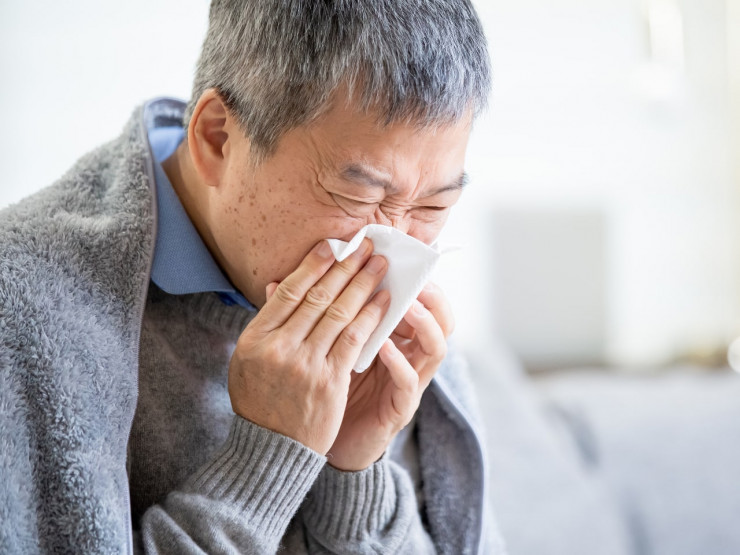Influenza (‘the flu’) is a common virus that affects your respiratory system including your nose, throat and sometimes your lungs.
It strikes every year, usually in the winter with a peak between December and March. It’s highly contagious and spread via droplets in the air when people talk, cough or sneeze.
Usually, flu gets better on its own within two weeks although you may continue to feel tired and weak as your body recovers. Some people (especially those with pre-existing health conditions) may become seriously ill or die as a result of the flu.
For that reason, it’s important to get your yearly flu vaccination from your local Whitworth Pharmacy or your GP.
Although there isn’t a cure for the flu, there are many things you can do to ease your symptoms and get back on your feet faster.
What are the symptoms of the flu?
The symptoms of the flu usually come on very suddenly and intensely, often leaving you feeling utterly miserable and barely able to function. You’ll struggle to get out of bed and want to sleep all day whilst your body fights off the virus.
Symptoms can include:
Runny nose
Sneezing
Stuffy nose
Blocked nose
Sore throat
Coughing
Post-nasal drip
Watery or burning eyes
Body aches
Fever of 38°C or above
Chills
Diarrhoea
Vomiting
Loss of appetite
Many of the symptoms of flu overlap with symptoms of COVID19.
However, if you have a high temperature and new, continuous cough or changes to your sense of taste and smell, you could have COVID. Follow current UK government guidelines and get tested then stay at home whilst you wait for your results, just to be on the safe side.
How to recover from flu more quickly
1. Stay at home and rest
Flu is highly contagious (it can be transmitted very easily) so you should avoid school and work and keep those germs to yourself whilst you recover. Rest as much as you can, sleep when you need to and don’t feel guilty about indulging in your favourite series on Netflix!
2. Drink plenty
Whilst you’re sick and as you recover, make sure you’re getting plenty of fluids. Water, fruit juice, herbal tea, broth-based soup and fresh fruits all count! This will help your body fight the virus, help keep your temperature down and help you feel better.
3. Take paracetamol or ibuprofen
Painkillers like paracetamol or ibuprofen can help alleviate your aches and pains and reduce your fever and are available as pills, chewable tablets and liquids for all ages. Also, ensure you’re not taking flu remedies with additional paracetamol or ibuprofen - you could accidentally overdose. Be aware that ibuprofen isn’t suitable for all so speak to your pharmacist or GP if you have any questions.
4. Treat your cough
Ease your tickly throat and break up any mucus so you can cough it up better by using one of the popular cough remedies you can find in our online store or in your local pharmacy. Speak to your pharmacist to find the right one for you.
5. Soothe your sore throat
Ease your symptoms of a sore throat (and bring your temperature down) by sucking a throat lozenge, sweet or an ice lolly.
6. Try steam
Steam can be a cheap and effective way to break up mucus and ease your breathing. Simply fill a bowl with boiling water, drape a towel over your head and inhale the steam, or go into your bathroom, run the shower and sit in the steam. You can also use a humidifier to help the whole family. Always supervise young children as you do this to ensure they don’t suffer from burns.
7. Speak to a pharmacist
Your friendly pharmacist can provide you with advice on how to treat your flu symptoms and recommend effective remedies. Pop into your local pharmacy or call for advice.
When should you see a doctor?
You should get advice from NHS 111 if you’re:
Worried about your baby's or child's symptoms
Aged 65 or over
Pregnant
Suffering from a long-term medical condition
Having chemotherapy, suffering from HIV or have a weakened immune system
Still experiencing severe symptoms after 7 days
Call 999 immediately or visit A&E if you:
Develop sudden chest pain
Have difficulty breathing
Start coughing up blood
If you’d like to learn more about colds and flu, read our winter health guide here or get in touch with your local Whitworth Pharmacy.



